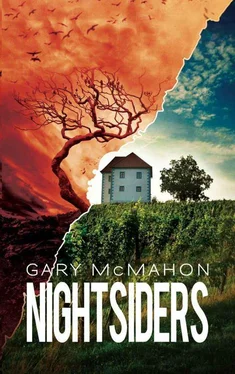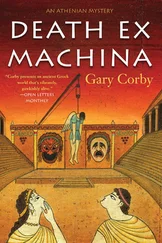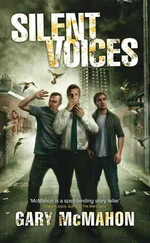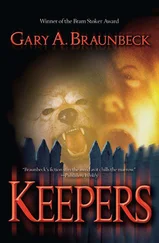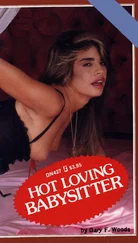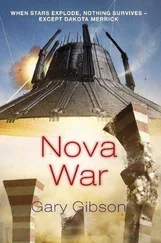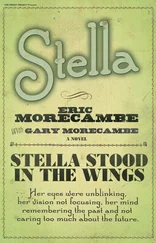Nate Corbeau stood to one side, holding his face. There were a few spots of blood on the side of his forehead, below the hairline, but otherwise he looked unharmed. He was not even breathing heavily. The scuffle had clearly left him unmoved.
“Now,” said the policeman, “can anyone tell me what the hell’s been going on here?”
Monica Corbeau rushed to the policeman’s side. “Listen, McMahon, this sodding idiot just attacked my Nathan. I want him locked up.” Her face had become hard, the lines turning into edges and taking on a sharpness Robert had failed to notice previously. “He’s mad.”
Sergeant McMahon sighed. He scratched his arm and crouched down beside Robert. “Listen, sir, I can see you’re a sensible man, not usually prone to violence. I mean, you’re knackered after that little episode, aren’t you?” He smiled again, and in that smile Robert saw a possible ally.
“I’m sorry. Really. But, you see, we bought this house weeks ago, before going on holiday, and when we got back just now, we found these… people here. They were in our house. I didn’t know what else to do.”
Sergeant McMahon looked around at Nathan and Monica Corbeau. His face was out of sight, so Robert failed to see what kind of expression passed between them. When he turned back to Robert, the sergeant’s face was harder, almost rigid. “I’m sorry, sir, but I’m going to have to ask you to come down to the station, in Battle. The Corbeaus here have been living in this house for about a fortnight. I was here when they moved in.”
“But…” Sarah had spoken at last, but her words dissipated in the warm, still air. She raised her hands to her face, and her eyes grew wide with disbelief. Robert had never before seen such a look of confusion on her face, and it saddened him to know it was merely a reflection of how his own face must look. He nodded, stood slowly, and allowed the sergeant to direct him to the front of the police car.
“Can you drive?” said McMahon, speaking now to Sarah. “Can you follow us in your car? I’m sure we’ll get this all cleared up without any further need for unpleasantness. I was hoping to avoid the paperwork, but your fella here seems adamant on putting me through it today.” Again there was the flash of a kind smile, and a vague sense of warmth.
Sarah nodded. “Yes, I’ll follow. I’ll follow you in.” She turned and stared at the Corbeaus, hatred blazing in her eyes, and then spun away to stalk back toward the Volvo. “Get in the car!” she snapped at the kids, and they silently obeyed her, knowing well enough to hold their tongues. Robert experienced a strange sense of loss as he watched them all climb into the vehicle. Sergeant McMahon pushed his head down to avoid the roof and gently helped him inside the police car.
Robert stared at the house through the rear window. The Corbeaus were standing there, watching him leave, and even as the car pulled away he could see their sullen grins. They were enjoying this; it was all going to plan. For some reason they had chosen him and his family for mischief, and he knew this would never be over until they had achieved whatever their aim might be. He hoped simple mischief was all they were after, and that once they had won they would move on, leaving him to pick up the pieces. He was very good at picking up the pieces.
It was a short drive into town, and the police station was situated on the main road just as they entered Battle itself. It was a small, squat building, made of red brick and with tiny windows. It looked like it might have been built in the early 1980s—certainly no earlier than the mid-1970s—and reflected the casual ugliness of that era. A few police cars and motorcycles were parked in spaces at the front of the building, but Sergeant McMahon drove them round the back, where he pulled up in a space beside some double doors. “No need for the main entrance,” he said. “Let’s keep this nice and low-key, eh?”
“Thank you,” said Robert, lifting his head and examining the man’s face. McMahon was slightly overweight, but not quite tall enough to carry it off. His face, now that his color had returned to normal, was long and plain, with dark brown eyes and a slight gingery stubble growth on his chin. He looked young—perhaps in his late twenties or early thirties—yet radiated a sense of trust and experience. Robert doubted the man had much trouble dealing with whatever passed for crime in a small town like Battle, and his aforementioned dislike of paperwork probably contributed to his strategy of low-level policing.
“Let’s get you inside, make you a cup of tea, and get this nasty little problem ironed out. I’m not sure about you, but I’m parched.”
McMahon opened the rear door and waited for Robert to climb out of the car; then he led his docile prisoner across the car park and in through the double doors.
After passing through a back office, where a handful of mostly uniformed people at desks barely looked up from their work to acknowledge their presence, Robert found himself sitting in a plastic chair in a cramped room with photos on the wall. The photographs mostly showed another man, not Sergeant McMahon, on various fishing expeditions. In each shot he was holding large fish, grinning with other men, and posing on some riverbank.
“It’s my boss’s office. He’s on holiday. Do you fish?”
“No,” said Robert. “No, I don’t. Not much call for it in London.” He regretted his flippancy immediately, but by then it was too late to take it back.
“Ah, I see,” said McMahon, stretching. “Not in London now, though, are you? You’re up north, with us lot.” He smiled, but this time it was not quite as friendly. He looked toward the glass door, cocking his head to one side. “I think your wife has just come in. Just relax and I’ll make sure she’s comfortable while we have a little chat.” He left the office and closed the door behind him.
Robert looked around the small room, reading the spines of the law books and paperback thrillers on the shelves, glancing at the bushes and the landscaped area beyond the window, and then finally looking inward, where his anger was now sleeping.
“Now, then.” McMahon had reentered the room, and was carrying two Styrofoam cups. “Sugar?” He had been gone just long enough to send for the teas, and perhaps to start checking up on Robert and his family, to access official records and official databases to see who they were.
Robert nodded.
McMahon sat down opposite him and stirred the teas, and then he pushed one toward Robert. “Drink up.” He took a sip from his own cup, grimaced, and then put the cup down on the uncluttered desk. “Tastes like liquidized shit, but it’s better than nothing.”
Robert waited for his tea to cool. He stared at the cloud of vapor that shimmered above the rim of the cup, wondering what had gone so very wrong with his life—not just now, in the last hour or so, but before, when they had been forced to leave London and come here, where they clearly did not belong.
“So what happened? In your own words, what’s been going on?” McMahon leaned back in his chair and carefully studied Robert’s face.
“Like I said, my family and I have been away camping in the Lake District. We got back this morning, to the house we bought before going away, and found those people there, acting as if they owned the place…claiming they do own the place.”
McMahon sat forward, placing his hands flat on the desk. “And then you attacked Mr. Corbeau? Is that right?”
Robert shook his head; then he nodded. “He provoked me, goaded me into it. I mean, what would you do if you found someone in your house? He’s even changed the locks. My key…it wouldn’t fit.” Right then he began to realize how stupid this all sounded. His story barely held water. As far as McMahon was concerned, he had been called out to a dispute and found two grown men fighting, one of whom he knew and the other a stranger—an impolite, rather standoffish stranger from London. “I know how this looks…” He tailed off, lamely.
Читать дальше
